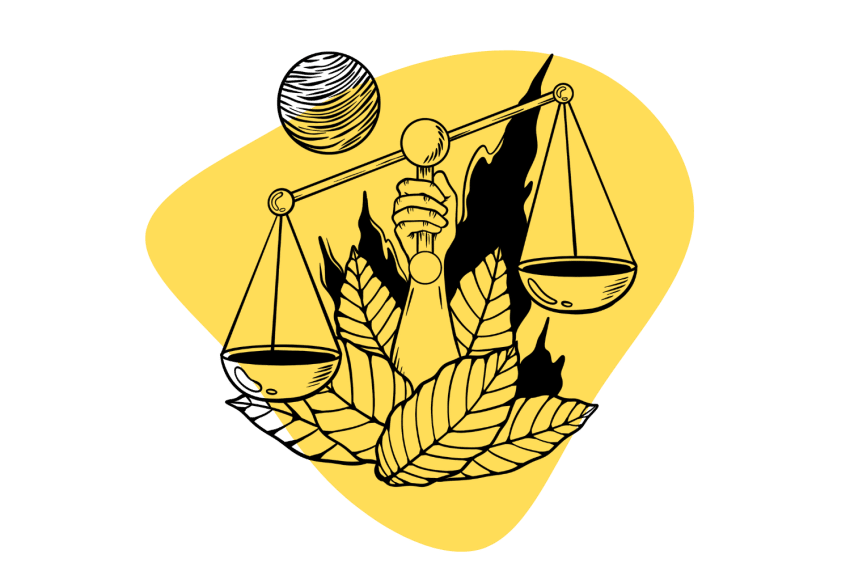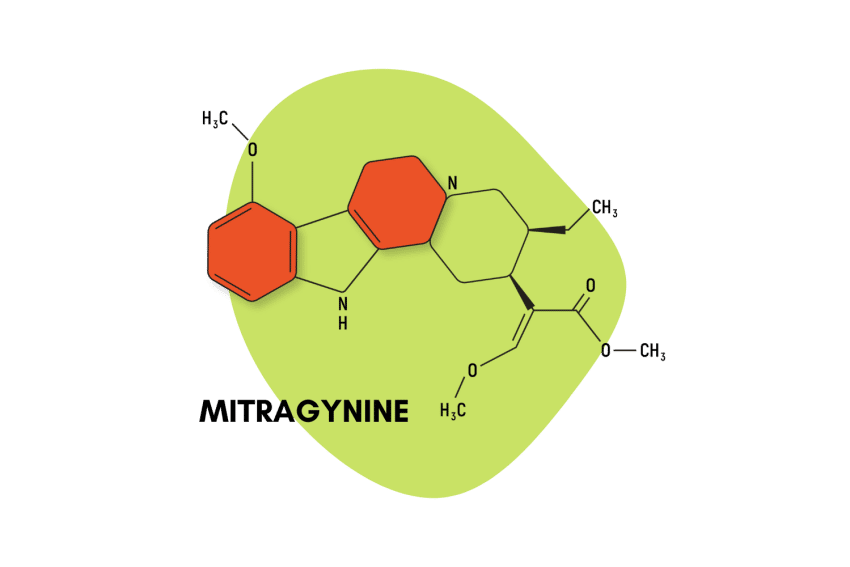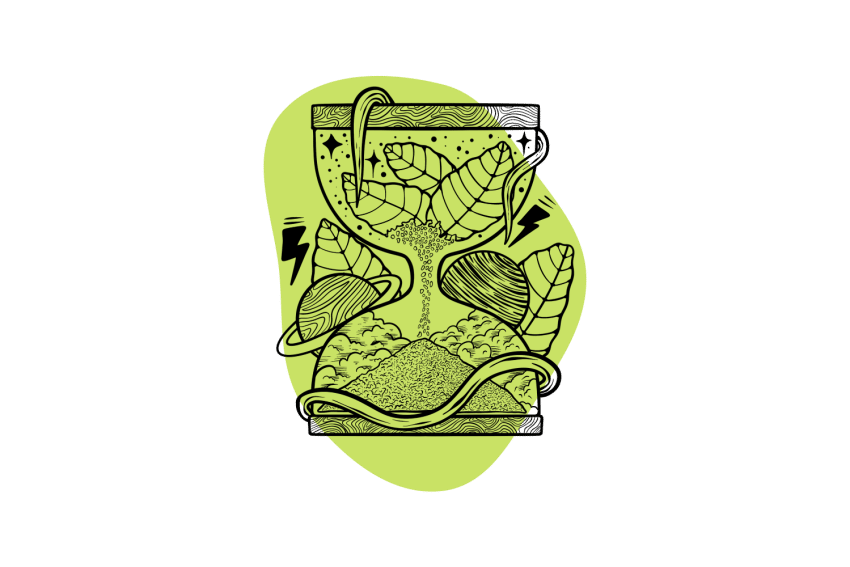Kratom Legality: Where It’s Legal & Why Some Areas Ban Kratom Use
As controversial as kratom is, it remains legal in most parts of the world. May view it as a solution for the drug epidemic, while others argue it could make it worse. Here are the current laws for buying, selling, and using kratom around the world.

Kratom has gained immense popularity over the past decade or so, and with that popularity has come a lot more scrutiny from government agencies.
Kratom remains a largely unregulated substance, although some municipalities have opted to restrict the sale, possession, and use of kratom — while others have banned it altogether.
In the US, kratom is illegal in Louisiana (which bans a very long list of other plant medicines, too), Arkansas, Indiana, Rhode Island, Vermont, and Wisconsin. It’s also banned in a few municipalities in California, Colorado, and Illinois. It remains legal virtually everywhere else.
Outside of the US, only a few countries have opted to ban or heavily regulate kratom — Argentina, Australia, Bulgaria, France, Israel, Japan, New Zealand, Poland, Peru, Russia, Vietnam, and Sweden.
Keep reading to learn more about where kratom is banned or regulated, what the laws say, and why there is so much debate around whether or not to ban kratom.
Why Is Kratom So Controversial?
Kratom has been used throughout Southeast Asia for hundreds (potentially thousands) of years.
Most of the traditional uses surrounded the plant’s ability as an energizer, similar to coffee (both kratom and coffee are members of the same family). Modern uses leverage much larger doses as an alternative to opioid pain medications.
Some argue kratom is an important alternative people can turn to instead of addictive opiate painkillers — others suggest kratom serves as a gateway for these more problematic substances.
While it’s clear that kratom is less addictive and dangerous than synthetic opioids, people can still get addicted to its effects [1].
Like all things, the truth is somewhere in the middle. Kratom can be a powerful medicine and harm-reduction agent — but it can also be abused and lead to harm.
Whether the government should step in to ban or limit the sale of kratom is thought to answer. Based on the previous track record of the War on Drugs, it’s very unlikely banning kratom will have any impact on drug addiction rates. Keeping it legal and implementing it responsibly as a tool for weaning off (or avoiding) more addictive painkillers may be the best option.
Kratom Legal Status: 3 Schools of Thought
There are three solutions that different local governments have implemented in the US and in other countries regarding the legality of kratom:
These include:
- Allowing kratom to remain legal and unregulated
- Restricting the sale, possession, and use of kratom
- Banning kratom entirely
In most states and countries, kratom remains legal and unregulated — which means anybody can sell it, buy it, or use it.
A handful of states, cities, and countries have banned kratom entirely.
Age restrictions are the least common (but most sensical) solution. They seem to be the most productive way of maintaining some control over kratom use but still making it available to those who use it for medicinal purposes.
The biggest problem with scheduling kratom (AKA banning it) is that those laws make kratom much more difficult or impossible to study [2].
Because of its excellent medicinal potential and use as a harm-reduction agent, this research is very important.
Is Kratom Legal in the United States?
Kratom is currently legal and unregulated on a federal level, and the herb has yet to be listed as a scheduled — banned or heavily regulated — substance by the Drug Enforcement Agency (DEA).
But that doesn’t mean they haven’t tried.
In 2016, the DEA announced that it would temporarily reclassify kratom as a Schedule I drug. This would have made it illegal to possess or sell kratom in the United States.
However, after widespread public backlash, including protests, petitions, and calls by Congress to overrule the decision, the plan to ban kratom was dropped.
Kratom Legality By State
| State | Current Legal Status of Kratom |
| Alabama | Banned 🚫 |
| Alaska | Legal and unregulated ✅ |
| Arizona | Regulated but legal for use ⚠️ |
| Arkansas | Banned 🚫 |
| California | Banned in parts of San Diego County but legal elsewhere ⚠️ |
| Colorado | Banned in the cities of Parker and Monument and regulated in Denver, but it’s legal elsewhere ⚠️ |
| Connecticut | Legal and unregulated ✅ |
| Delaware | Legal and unregulated ✅ |
| Florida | Legal and unregulated ✅ |
| Georgia | Regulated but legal for use ⚠️ |
| Hawaii | Legal and unregulated ✅ |
| Idaho | Legal and unregulated ✅ |
| Illinois | Banned in Alton, Edwardsville, and Jerseyville but legal elsewhere ⚠️ |
| Indiana | Banned 🚫 |
| Iowa | Legal and unregulated ✅ |
| Kansas | Legal and unregulated ✅ |
| Kentucky | Legal and unregulated ✅ |
| Louisiana | Legal and unregulated ✅ |
| Maine | Legal and unregulated ✅ |
| Maryland | Legal and unregulated ✅ |
| Massachusetts | Legal and unregulated ✅ |
| Michigan | Legal and unregulated ✅ |
| Minnesota | Legal and unregulated ✅ |
| Mississippi | Legal and unregulated ✅ |
| Missouri | Legal and unregulated ✅ |
| Montana | Legal and unregulated ✅ |
| Nebraska | Legal and unregulated ✅ |
| Nevada | Regulated but legal for use ⚠️ |
| New Hampshire | Regulated but legal for use; age restrictions in place 🚫 |
| New Jersey | Legal and unregulated ✅ |
| New Mexico | Legal and unregulated ✅ |
| New York | Legal and unregulated ✅ |
| North Carolina | Regulated but legal for use; age restrictions in place ⚠️ |
| North Dakota | Legal and unregulated ✅ |
| Ohio | Regulated but legal for use ⚠️ |
| Oklahoma | Legal and unregulated ✅ |
| Oregon | Legal and unregulated ✅ |
| Pennsylvania | Legal and unregulated ✅ |
| Rhode Island | Banned 🚫 |
| South Carolina | Regulated but legal for use; age restrictions in place ⚠️ |
| South Dakota | Legal and unregulated ✅ |
| Tennessee | Regulated but legal for use; age restrictions in place ⚠️ |
| Texas | Legal and unregulated ✅ |
| Utah | Regulated but legal for use ⚠️ |
| Vermont | Banned 🚫 |
| Virginia | Legal and unregulated ✅ |
| Washington | Legal and unregulated ✅ |
| West Virginia | Legal and unregulated ✅ |
| Wisconsin | Banned 🚫 |
| Wyoming | Legal and unregulated ✅ |
What Countries Have Banned Kratom?
Kratom remains federally legal in the United States and most other countries, although it has been banned country-wide in some areas.
Any countries not appearing on this list have no restrictions on kratom use as of this writing.
Countries that have banned or limited kratom:
- Argentina (banned)
- Australia (banned)
- Bulgaria (banned)
- China (banned in Hong Kong)
- Denmark (banned except for medical use)
- Finland (banned except for medical use)
- France (banned)
- Israel (banned)
- Japan (banned)
- New Zealand (banned)
- Norway (banned except for medical use)
- Peru (banned)
- Poland (banned)
- Russia (banned)
- Sweden (banned)
- Turkey (banned)
- United Kingdom (banned)
- Vietnam (banned)

What Is the Future of Kratom’s Legality?
Since many countries, states, and cities are actively changing their outlook on kratom and how to deal with its legality, it remains largely unclear how readily available kratom will be going forward. Much of the herb’s future depends on current research on safety and potential for misuse and abuse, as well as on the public perception of the plant and its potential medicinal uses.
At the same time that some government agencies are moving to ban or regulate the substance, other organizations and pieces of legislation are pushing to legalize it and protect the rights of kratom users. These include the American Kratom Association (AKA) and the Kratom Consumer Protection Act (KCPA).
Even the World Health Organization (WHO) is on board. It made the monumental decision that kratom is not a public threat and should not be a scheduled substance.
We find it unlikely that kratom will be banned outright by the federal government in the US, although there is a chance that more states will move to ban it in the future. Legality is also up in the air in other countries, especially those where kratom use hasn’t yet flourished as it has in America. However, the WHO’s stance will likely go far in keeping kratom legal.
References
- Kosten, T. R., & George, T. P. (2002). The neurobiology of opioid dependence: implications for treatment. Science & practice perspectives, 1(1), 13.
- Prozialeck, W. C., Avery, B. A., Boyer, E. W., Grundmann, O., Henningfield, J. E., Kruegel, A. C., … & Singh, D. (2019). Kratom policy: the challenge of balancing therapeutic potential with public safety. International Journal of Drug Policy, 70, 70-77.








